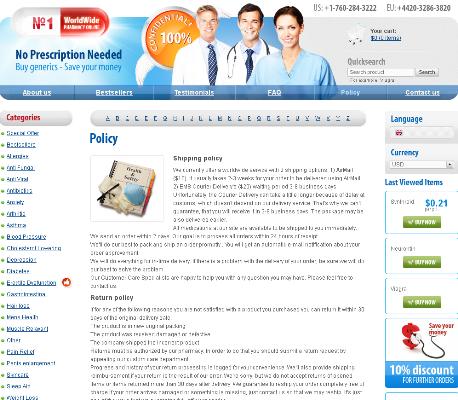Understanding Sinequan: an Overview of the Medication
Sinequan, also known by its generic name doxepin, is a tricyclic antidepressant that has been used for decades to treat both depressive and anxiety disorders. Originally developed in the 1960s, Sinequan's primary function is to balance chemicals in the brain that influence mood and emotions. By altering the levels of neurotransmitters like serotonin and norepinephrine, Sinequan helps to stabilize mood swings and provide relief from anxiety symptoms.
| Key Details | Description | |-------------|-------------| | Generic Name | Doxepin | | Drug Class | Tricyclic Antidepressant | | Developed | 1960s | | Primary Function | Balances brain chemicals influencing mood |
Often prescribed when other medications prove ineffective, Sinequan has shown notable success in alleviating generalized anxiety disorder, panic attacks, and even some forms of chronic pain. Its versatility in addressing multiple conditions makes it a valuable tool in the field of mental health care.
How Sinequan Alleviates Anxiety Symptoms

Sinequan, also known as doxepin, works by modulating the balance of neurotransmitters in the brain, such as serotonin and norepinephrine, which play a crucial role in mood regulation and anxiety reduction. By preventing the reuptake of these neurotransmitters, Sinequan allows for increased availability in the synaptic gap, promoting a more stable and positive mood.
This mechanism not only helps to alleviate anxiety symptoms but also enhances overall emotional well-being. Individuals using Sinequan often report a noticeable decrease in restlessness, irritability, and excessive worry. The medication fosters a sense of calm and composure, allowing individuals to engage in daily activities more comfortably and effectively. Sinequan thus serves as an important tool for those seeking relief from anxiety's debilitating effects.
The Science Behind Sinequan's Effectiveness
Doxepin, known commercially as Sinequan, operates primarily as a tricyclic antidepressant, targeting various neurotransmitters in the brain. Its primary action involves the inhibition of neurotransmitter reuptake, particularly serotonin and norepinephrine, which are crucial in regulating mood and emotional responses. By preventing their reabsorption, Sinequan enhances the availability of these mood-stabilizing chemicals in the brain, thereby mitigating symptoms of anxiety.
In addition to its impact on neurotransmitters, recent studies indicate that Sinequan may also influence histamine receptors. This dual-action mechanism not only alleviates anxiety but also has sedative properties, which can be beneficial for those whose anxiety disrupts their sleep patterns. Through this multifaceted approach, Sinequan offers a comprehensive treatment for individuals struggling with anxiety, promoting both mental tranquility and better sleep quality.
Common Side Effects of Sinequan to Consider

When taking Sinequan for anxiety, patients may experience various side effects that could impact their daily lives. Common adverse effects include drowsiness, dizziness, and dry mouth, which can pose challenges, especially when performing tasks that require alertness. Some individuals might also encounter weight gain and constipation. It's crucial to note that these side effects can vary in intensity and may dissipate over time as the body adjusts to the medication.
Furthermore, while these symptoms are common, more severe reactions like changes in mood, unusual thoughts, or signs of an allergic response (such as rash or difficulty breathing) warrant immediate medical attention. Navigating these potential side effects effectively involves regular consultations with healthcare providers to monitor any adverse developments and adapt the treatment plan accordingly.
Who Should and Shouldn't Take Sinequan
Sinequan is often prescribed to adults struggling with chronic anxiety disorders. Its efficacy in alleviating anxiety symptoms makes it a valuable addition to treatment plans. However, certain individuals should approach this medication cautiously.
| Recommended Users | Non-recommended Users |
|---|---|
| Adults suffering from generalized anxiety disorder | Children under 12, pregnant women, and individuals with a history of cardiac issues |
Patients with a history of adverse reactions to tricyclic antidepressants may need alternative treatments. Consulting a healthcare provider is essential to tailor the best approach for safe and effective use. Before considering Sinequan, a comprehensive medical evaluation ensures it aligns well with individual health profiles.
Sinequan: Tips for Safe and Effective Use
To ensure the safe and effective use of Sinequan, start with the right dosage as prescribed by your healthcare provider. It's vital to follow the guidelines closely, taking the medication exactly as directed. This can help maximize its anxiety-relieving benefits while minimizing potential side effects. Monitor your body's response over time and make note of any changes or new symptoms, relaying this information to your doctor.
Avoid suddenly stopping the medication without professional guidance, as this can lead to withdrawal symptoms or aggravate anxiety. Combining Sinequan with lifestyle changes such as regular exercise, a balanced diet, and mindfulness practices can further enhance its positive effects on mental health.

